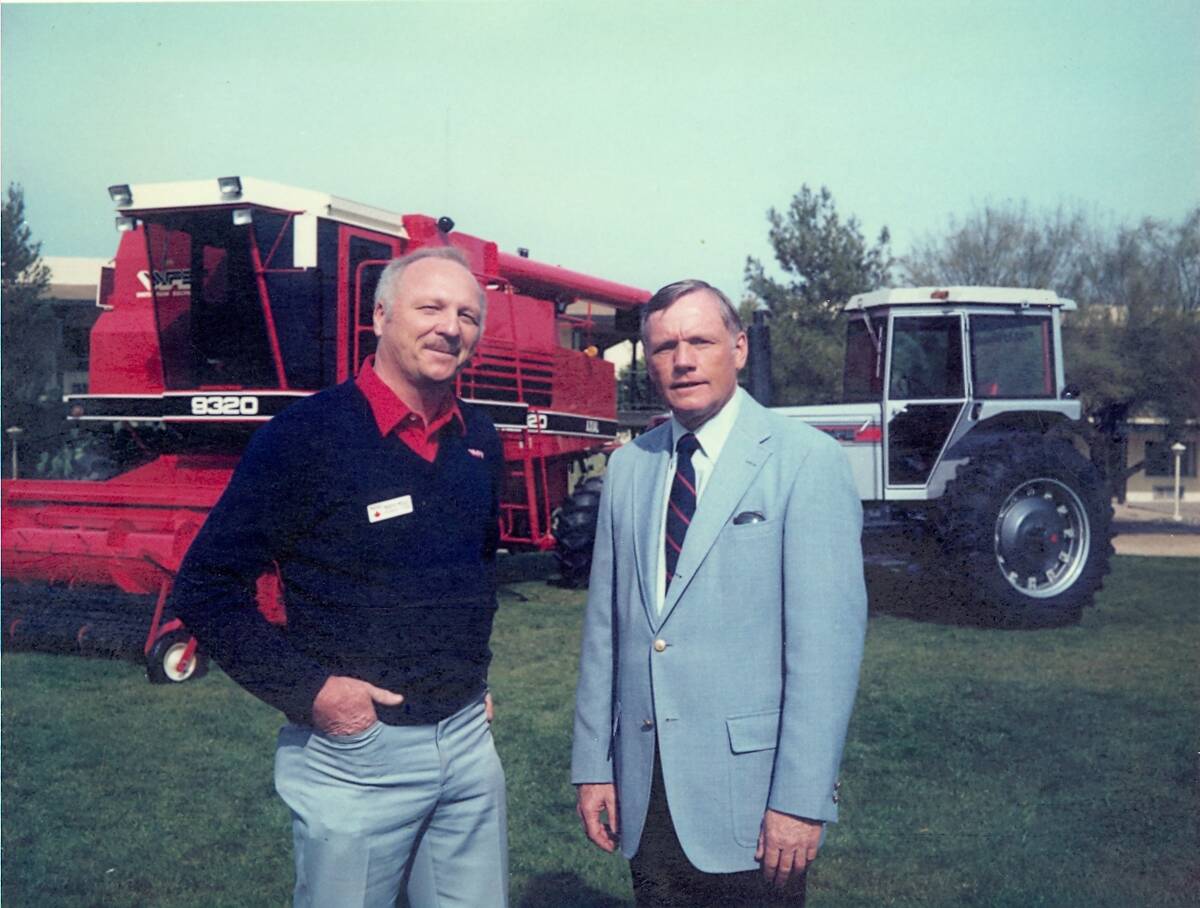When there are financial concerns on the farm, it’s important to address them sooner rather than later, and find a way forward. Financial issues can occur in any business. Reasons for financial distress on farms can be as varied as harvest issues, crop failures, decreased market prices, cash-flow challenges or excessive debt loads. It is important not to lay blame on anyone or anything — including the weather.
When you are faced with a financial problem, what do you do? Who do you turn to? Here are some methods I have recommended over the last 15 years as a farm financial consultant.
Read Also

Right stuff, wrong time: How a team in Ontario developed the highest-capacity rotary combine of its day
Innovations by a team in Ontario in the late ’60s would lead to the production of the biggest rotary combine of that time. Then the manufacturer went bankrupt.
First talk to all your creditors and explain the situation. Creditors know financial distress can and will occur. If you are still on good terms with your existing lenders, they will usually listen to you and try to help you through the dilemma.
The important thing is that you present your creditors with a plan that will get you through the problem and onto a solid financial footing — a recovery business plan. You may need help to prepare a comprehensive plan that includes financial ratios and other analysis
If your existing creditor(s) are not willing to work with you, “shopping” your recovery plan to other lenders may be an alternative. This means making appointments with account managers (now usually called relationship managers), explaining your situation and presenting your plan. It usually takes several weeks to get a reply so it is important to start early.
As part of your recovery plan, you may need to make some significant changes to your farm operation. Here are some suggestions.
Asset sales: Maybe you can sell some land to reduce your debt load. You might even be able to rent it back. Excessive investment in machinery is an issue on some farms. Consider selling excess machinery or machinery you rarely use, then renting or leasing it when you really need it.
Debt restructuring: Usually this means using a consolidation loan to retire some or even all of your financial liabilities. The result is that the debt is amortized (stretched out) over a longer term and the payment amounts are reduced. This can alleviate your cash-flow issue (somewhat). An unfortunate negative consequence is that over the longer repayment period you will pay a larger amount of interest (ie. short-term gain for long-term pain). A way to alleviate this problem is to ask for a penalty-free principal re-payment option at least once a year. When your financial situation improves you can pay off the principal faster and reduce the total amount of interest paid.
Off-farm employment: This may or may not be an option depending on where you live, availability of off-farm work, your existing workload, age and qualifications, etc.
Mediation
If the above options don’t work, Agriculture and Agri-Food Canada has a Farm Debt Mediation Service (FDMS) right across Canada. Before a secured farm creditor can commence any recovery action they must first make application to the Farm Debt Mediation Service.
The Service provides a consultant and mediator to try to help the creditor(s) and farmer come to a mutually acceptable agreement regarding the debt(s) in question, at no cost to the farmer. If this is not successful the creditor can realize on (take back) their security.
There is also a program option that allows farmers to make a voluntary application to the program if they foresee financial difficulty. Again, a consultant and mediator (at no cost) will be appointed to try to help you come to an agreement with the creditor(s). Before a situation becomes dire, consider this option.
Time to retire?
When I’m working with farms in financial distress one of the first questions I ask (as nicely as I can) is “are you sure you want to continue farming?” In all the situations I’ve been involved with the answer has been “yes, can you find a way for us to continue?” But that is sometimes not realistic.
Retiring (or selling out) is usually a last-resort option but it should be considered if all the above fail. This option can relieve a lot of mental stress and thus be advantageous in the long term for the farm operators and their families. However, before you consider this route talk to your accountant. A sudden dispersal may result in a large income tax obligation which is like adding insult to injury.
Bankruptcy
If all of the above fail there is one final option and that is to declare bankruptcy. This is usually only used when a farmer’s total liabilities (debts) exceed his assets (amounts they own free and clear). There is federal legislation that governs this process.
For more information
- Details about Agriculture and Agri-Food Canada’s Farm Debt Mediation Service can be found at the Government of Canada website.
- The Canadian Association of Farm Advisors (CAFA) can be a good resource to find help.
- Visit the Government of Canada website for information on the federal Bankruptcy and Insolvency Act.
















